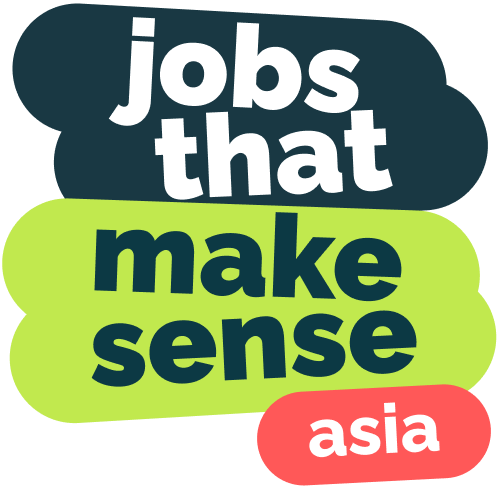Recruit in a more inclusive way thanks to soft-skills
Did you know that with equal skills, because of their social and/or geographical origins, a candidate must sometimes send 4 times more CVs to get a job interview? Many of us share this observation, but we do not always know how to find real solutions to avoid recruitment bias.
This is why we recently participated in a training with our partner Article1, on the subject of inclusive recruitment. Last December they created the JobReady program, to identify and know the soft skills to allow greater inclusion in recruitment.
So how can relying on soft kills help you recruit in a more inclusive way? We offer you in this article a short summary of this training, to give you all the cards to recruit in a more inclusive way thanks to soft-skills.
Inclusive recruitment, what is it?
Inclusion in general is built on five pillars: equity (feeling of fairness), transversal actions (including all diversities), inclusive cooperation, recognition of all identities, and neutralization of stereotypes. This ensures everyone feels heard, belongs, and can express themselves safely.
If we had to give a definition of inclusive recruitment, it would be recruitment ensuring equal treatment of all candidates, regardless of their backgrounds, their training, or even their disabilities. It gives everyone a chance, equal treatment and allows all talents to be included.
Soft skills: definition
Soft skills, or also known as interpersonal skills, are all aptitudes shaped by life experiences, which are transferable and transversal. They are different from hard skills, which are technical skills such as knowing how to use a particular tool for example. Soft skills are above all social, collective, emotional, adaptive and methodological.
These skills are real challenges in recruitment, because they represent, after experience, the second main criterion in the final selection of a candidate. They are also a major challenge for professional development and employability since they can explain 20% of the pay gap at the same level of diploma.
Article 1 and JobReady have defined 3 main families of soft skills, each with 3 to 4 sub-categories:
Social / interpersonal skills
- Communication
- Team work
- Conflict management
- Negotiation
Personal / intrapersonal skills
- positive leadership
- Self evaluation
- Adaptability
Methodological skills
- Learn to learn
- Analytical skills
- Creativity
- Problems solving
Written, oral or non-verbal communication, active listening, diplomacy, empathy, ethics or even critical thinking fall into these categories, for example.
Key figure: 89% of managers consider that a break in the trial period is due to a concern for cross-functional skills, hence the importance of knowing how to detect and identify them when recruiting.
Benefit of inclusive recruitment thanks to soft skills
Focusing on soft skills during recruitment benefits inclusivity because they make it possible not to rely solely on the experience and training of candidates - sometimes unequal - but on skills acquired during their lives thanks to other experiences, professional or not. Of course, soft skills do not completely eliminate inequalities between candidates, but allow to have a more global vision of the skills that can be mobilized.
Beyond the societal challenge represented by inclusive recruitment, it is also a real performance lever. Inclusive companies are 60% more likely to see their results increase over a long period and to hire talent over time.
In addition, recruiting in a more inclusive way improves your employer brand. This shows that you really care about your candidates, rather than their technical skills or just their background.
Soft skills vs. hard skills
Did you know that the lifespan of a hard skill was 20 years in 1987 and that today it is barely two and a half years?
Moreover, 60% of the professions of 2030-2050 do not yet exist. In fact, asking for hard skills is much less useful than before, because they will disappear quickly, but can be acquired just as quickly.
By presenting and highlighting soft skills in your offers, more candidates with different profiles will recognize themselves and allow themselves to apply. You will therefore have more choices among candidates who match you, and you will find the rare pearl more easily!
Tips for recruiters for inclusive recruitment

Before writing ad
Before writing your ad, don't hesitate to take time as a team to define the skills mobilized for the mission, as well as the skills your team might lack. You can also prioritize the primary skills that are important for the position, from those that are more secondary and can be acquired during the job.
The do's and don't of ad copywriting
Don't:
- Restrict your ad to certain types of educational background only. Example: “graduate of a major engineering/business school”. It restricts to a small part of the population who can have access to this type of often expensive training.
- Ask for restrictive professional experiences. Example: “experiences in a large firm/in a large company”. Some candidates may not have these experiences and have therefore acquired various and useful skills for the mission you are proposing.
- Put a precision on the place of residence or the family situation which can be discriminatory criteria.
- Put only a list of hard skills.
- List too many soft skills, at the risk of discouraging some candidates.
- Enclose the profile in a number of years of experience (“between 2 and 4 years of experience”). The number of years of experience may not be related to the skills acquired.
Do:
- Think about the soft skills of the mission and integrate them into the ad.
- Focus on bullet points for a fair and concise list of soft skills
- Direct the offer towards a logic of necessary skills.
- Use gender-neutral language or inclusive writing.
- Highlight your commitment to diversity and inclusion. 90% of millennials (generation born between 1981 and 1997) seek information on diversity and inclusion efforts, and this is the case for 43% for the entire population.
- Specify the means of reception for people with disabilities.
- Bonus: specify that candidates can apply even if they lack certain technical skills.
During the interview
Finally, during the interview, don't hesitate to come back to the soft skills mentioned in the CV of the person you meet by asking them questions about a particular situation in which they used this skill.
For example, for time management, you can ask questions about how the candidate organizes themselves if they have several projects to manage at the same time. You can also use case studies to explore a candidate's analytical skills.
We hope that thanks to this article you will now be able to better identify the soft skills you are looking for in your candidates and that this will allow you to find your new talents!

